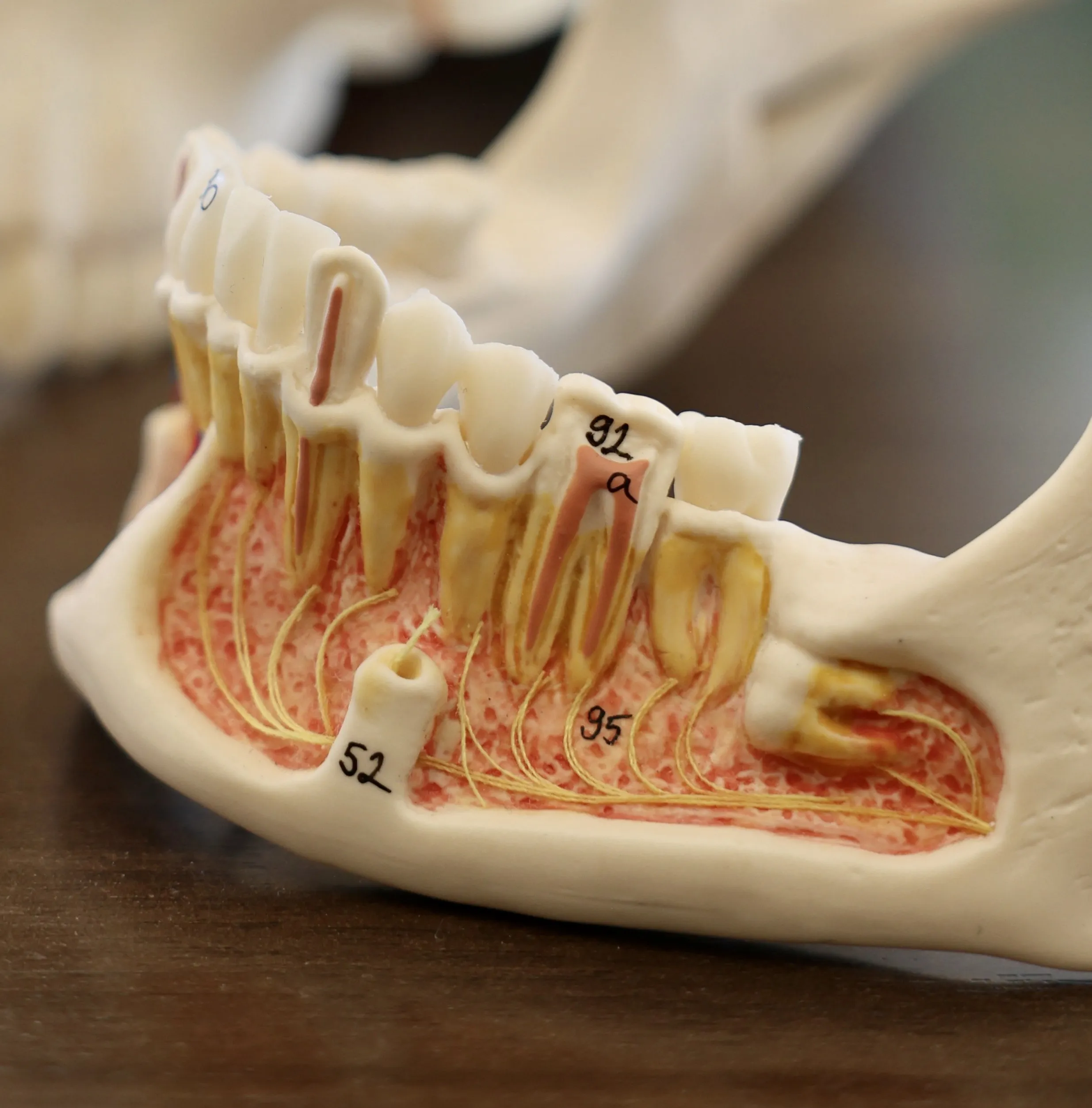Over 95% of dental implants are successful, but what happens when things go wrong? You’re enjoying your day, and suddenly you feel something strange in your mouth—your dental implant screw has fallen out. This unexpected event can be both alarming and uncomfortable.
Dental implants are meant to be a lasting solution, so understanding why the screw fell out and what you should do next is important. Let’s discuss why this happens and how you can prevent it.
Key Takeaways
- Dental implant screws can fall out due to poor hygiene, insufficient bone density, or excessive pressure.
- Symptoms of a loose screw include pain, swelling, or movement of the implant.
- If the screw falls out, keep calm, save the screw, and avoid reinserting it yourself.
- Prevent issues by maintaining good oral hygiene and avoiding hard foods.
- Contact NuSet Dental Implants for prompt and professional care today!
What Does a Dental Implant Screw Do?
A dental implant screw is a small but important component of your dental implant. It serves as the foundation for your replacement tooth. The screw is made of titanium and is surgically placed into your jawbone.
Over time, the bone grows around the screw, securing it firmly in place. This is called osseointegration, and it ensures that your implant is stable and functions like a natural tooth. The screw supports the abutment and crown, providing a strong, durable replacement for missing teeth.
Common Causes of Implant Screw Failure
If your dental implant screw has fallen out, it’s important to understand why. There are several reasons why this might happen, and addressing these issues can help prevent future problems. Here are some of the causes of implant screw failure:
Poor oral hygiene
Failing to maintain proper oral hygiene can lead to infections around the implant site. These infections can weaken the bone and gum tissue, causing the screw to become loose and fall out.
Insufficient bone density
If the jawbone doesn’t have enough density, it might not provide the necessary support for the implant screw. This can result in the screw becoming unstable and eventually falling out. This is why we carry out thorough examinations on our patients to check if they need dental bone grafting before implants. Bone grafting can provide the necessary support for the implant, ensuring its stability and longevity.
Improper placement
If the implant is not placed correctly during the initial procedure, it can lead to uneven pressure and stress on the screw. This improper placement can cause the screw to loosen and fall out over time.
Excessive pressure
Applying too much pressure on the implant, such as grinding your teeth or chewing hard foods, can strain the implant. This pressure can weaken the screw’s attachment and cause it to fail.
Symptoms of a Loose Tooth Implant Screw
Recognizing the symptoms of a loose dental implant screw can help you address the issue promptly. Here are the common signs to watch for:
- When the implant feels wobbly or moves slightly when you touch it with your tongue or finger.
- Persistent pain or discomfort around the implant site can indicate a problem.
- Swelling, redness, or signs of infection, such as pus around the implant area, are clear indicators that something is wrong.
- Receding gums around the implant.
If you experience any of these symptoms, contact your dentist immediately to prevent further complications.
What to Do If Your Dental Implant Screw Falls Out
It is uncommon for a dental implant screw to fall out, but if it does there are certain steps you can take:
- Keep calm and avoid panicking. It’s important to handle the situation with care.
- If possible, find and save the implant screw. Place it in a clean container.
- Do not touch or try to reinsert the screw yourself. This could cause further damage or infection.
- Call your dentist as soon as possible to explain what happened.
Prompt action can help prevent complications and ensure you get the necessary treatment to restore your dental implant. Call your dental implant specialist as soon as possible.
How to Prevent Your Dental Implant Screw From Coming Loose
It is rare for a screw to fall out, but there are a few habits that could increase the chances of your dental implant coming loose. Preventing your dental implants from loosening by maintaining your oral hygiene and avoiding hard foods or objects. The following tips will help prevent the screw from loosening:
- Brush and floss your teeth regularly to keep the implant area clean and free of plaque.
- Visit your dentist regularly for check-ups and cleanings. These visits help detect any issues early.
- Refrain from chewing on hard foods or objects that can put excessive pressure on your implant.
- Adhere to any specific care instructions given by your dentist, especially after the implant procedure.
In the event your screw does come loose, contact your dental implant specialist as soon as possible.
How We Fix Dental Implant Screws at NuSet Dental Implants and Oral Surgery
Fixing a dental implant screw involves a precise procedure. At NuSet Dental Implants and Oral Surgery, we start by carefully placing the titanium screw into your jawbone through a minor surgery. The bone then grows around the screw, securing it in place.
Once the screw is stable, we attach an abutment to it. This connector holds the crown, which is the visible part of the implant. Finally, we place the crown on the abutment, completing the restoration. Regular check-ups ensure the implant remains secure and functional.
Protect Your Dental Implants With NuSet!
A dental implant screw falling out isn’t something you plan for, but knowing how to respond can make all the difference. At NuSet Dental Implants and Oral Surgery, we specialize in helping patients navigate these unexpected moments with expert care and clarity.
Whether your implant screw has already come loose or you’re looking to prevent future complications, our experienced team is here to support you every step of the way. With personalized treatment plans, nationwide locations, and a focus on long-term results, NuSet is your trusted partner in dental implant care.
Don’t wait for minor issues to turn into major setbacks. Contact NuSet today and take the next step toward restoring your smile with confidence.
Frequently Asked Questions
What Happens if the Implant Screw Comes Out?
If the implant screw comes out, it can cause discomfort and potential complications. The area may become exposed to bacteria, leading to infection. It’s important to save the screw, avoid touching the area, and contact your dentist immediately for professional advice and treatment.
Can a Dental Implant Screw Be Put Back In?
Yes, a dental implant screw can often be put back in. Your dentist will assess the situation to ensure there are no underlying issues like infection or bone loss. They will clean the area, possibly treat any complications, and reinsert the screw securely.
Why Do Dental Implant Screws Come Loose?
Dental implant screws can come loose due to several reasons:
- Poor oral hygiene leads to infection
- Insufficient bone density
- Medical conditions like diabetes affect healing
- Improper placement
- Excessive pressure from activities like teeth grinding or chewing hard foods
What to Do When a Dental Implant Falls Out?
If your dental implant falls out, stay calm and save the screw. Avoid touching the area, and do not attempt to reinsert it yourself. Contact your dentist immediately for professional care and follow their instructions to prevent further complications and ensure proper treatment.





